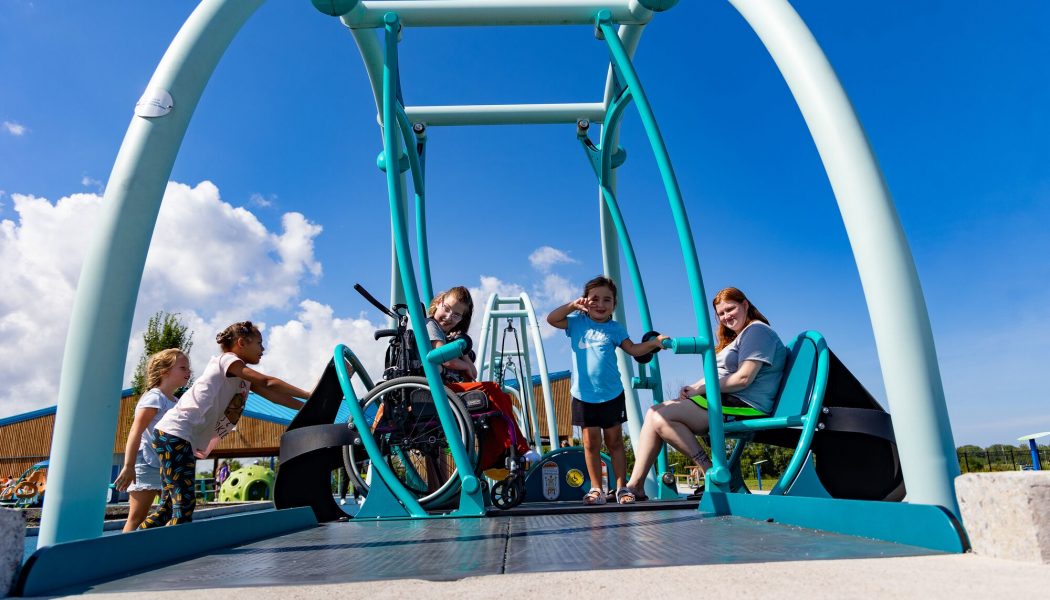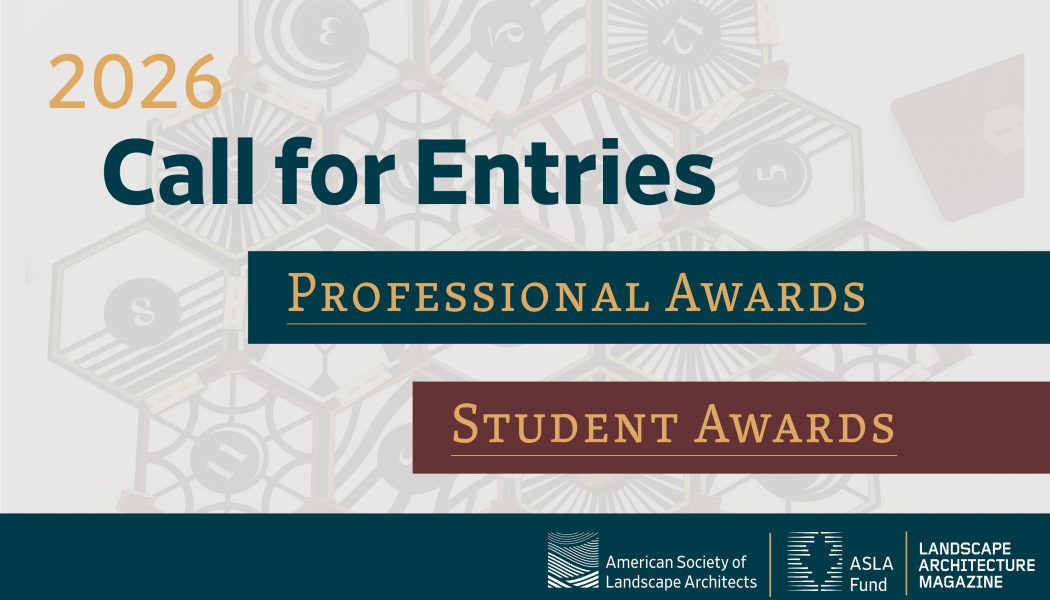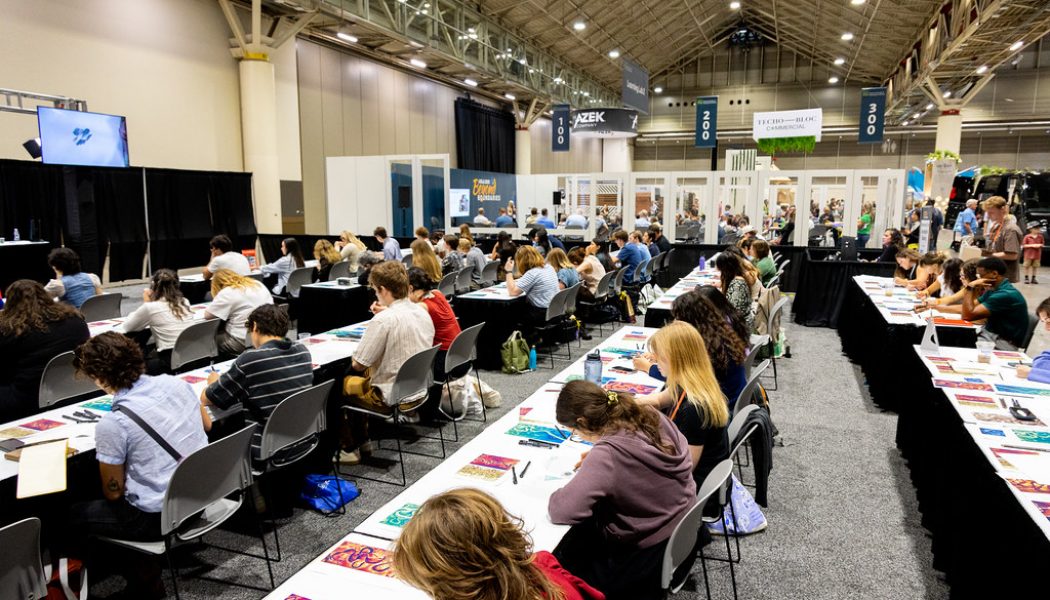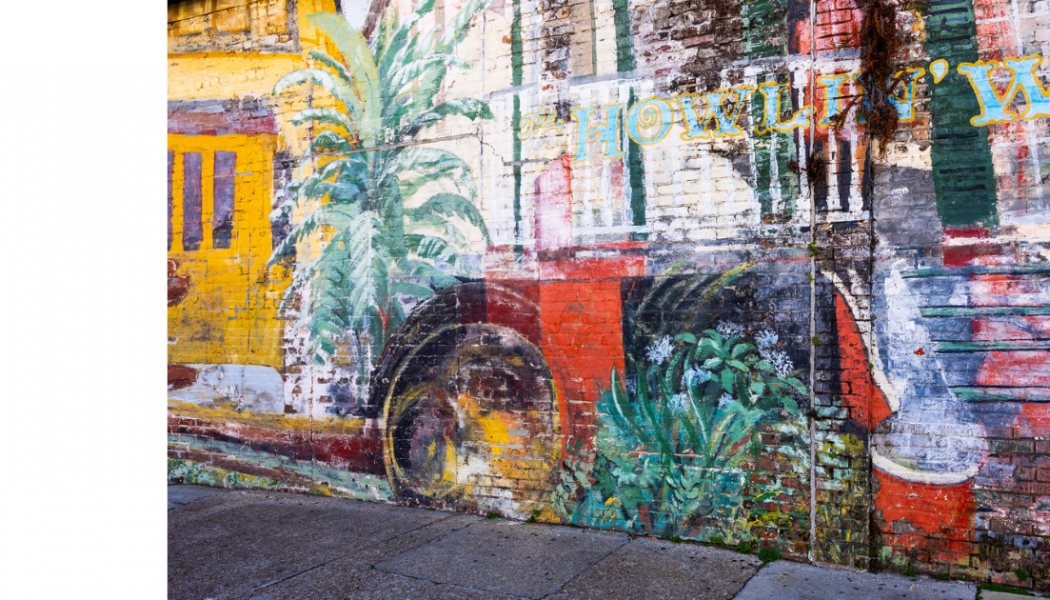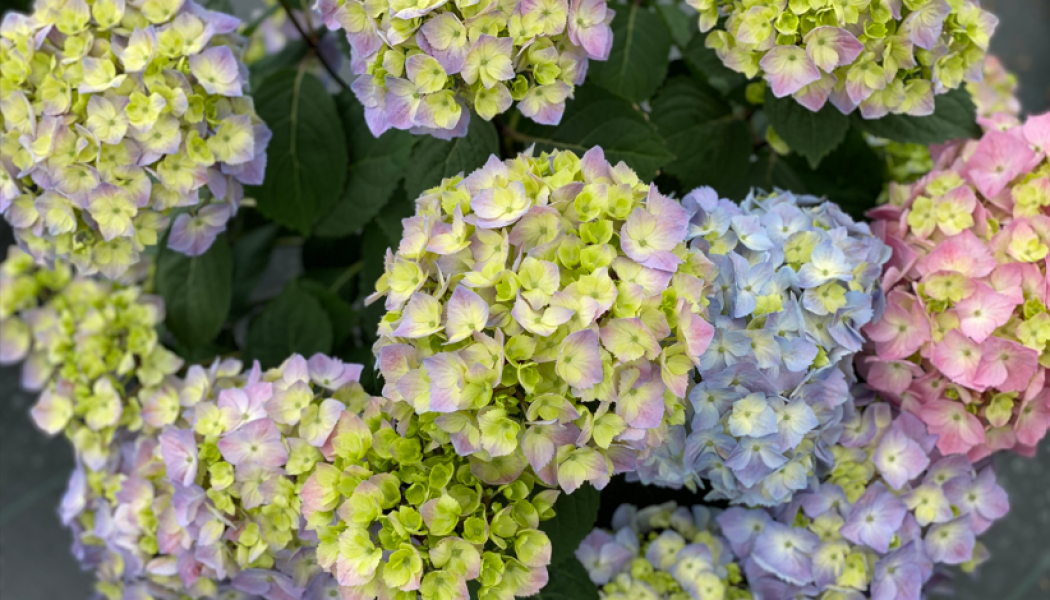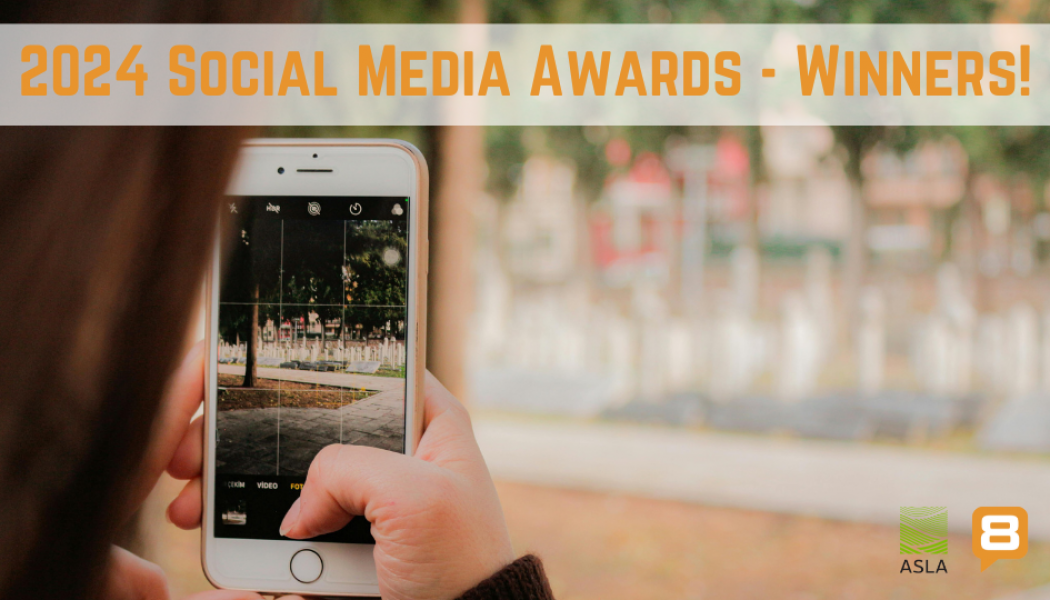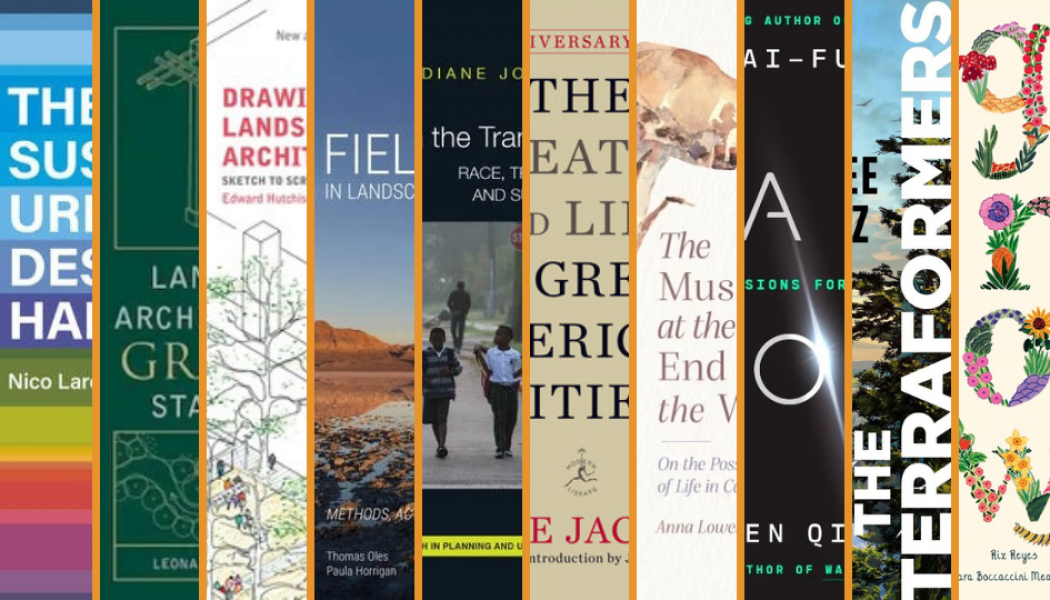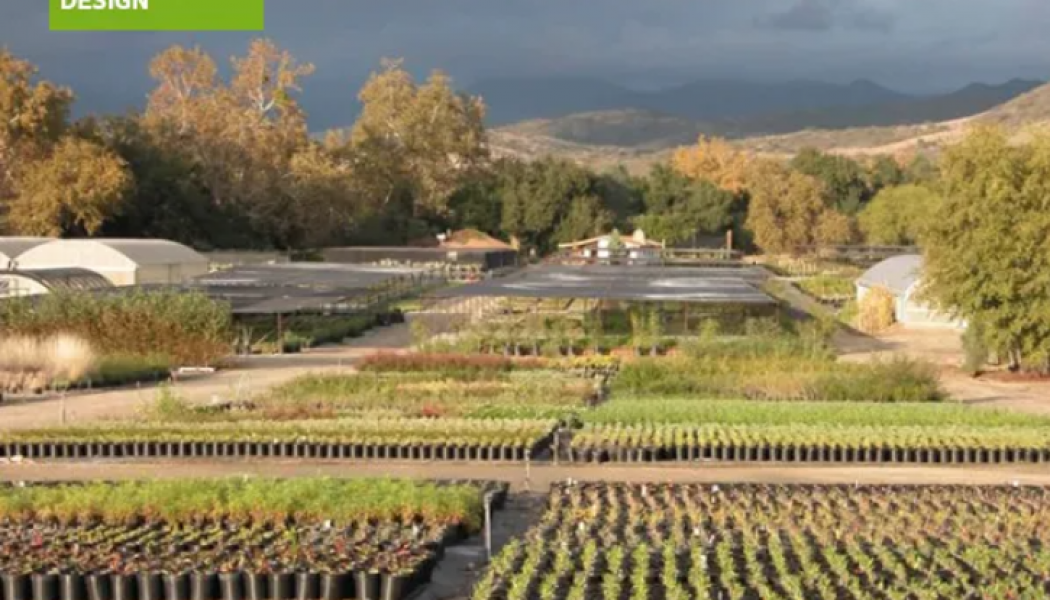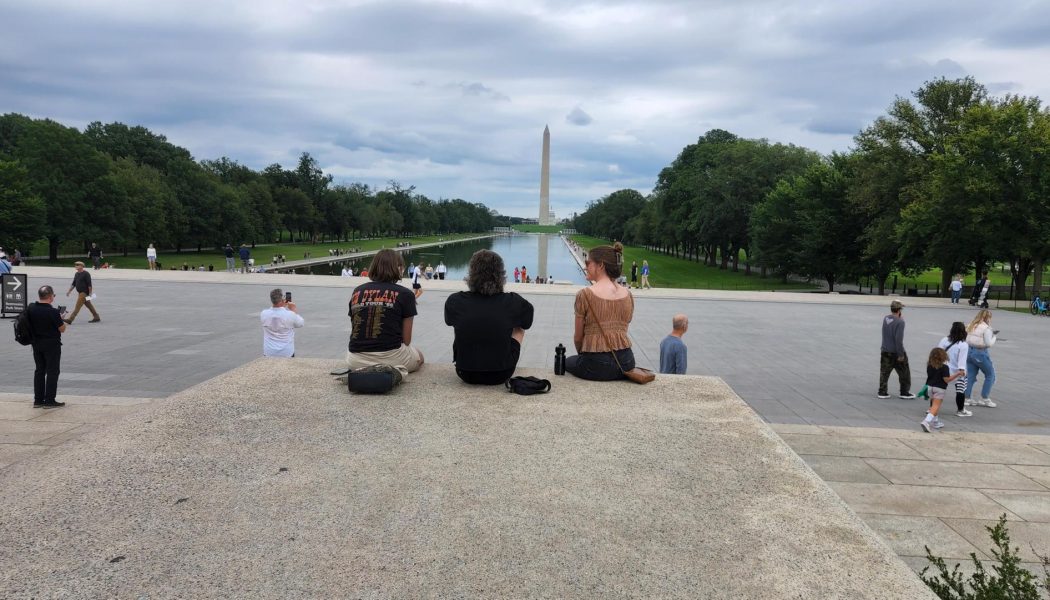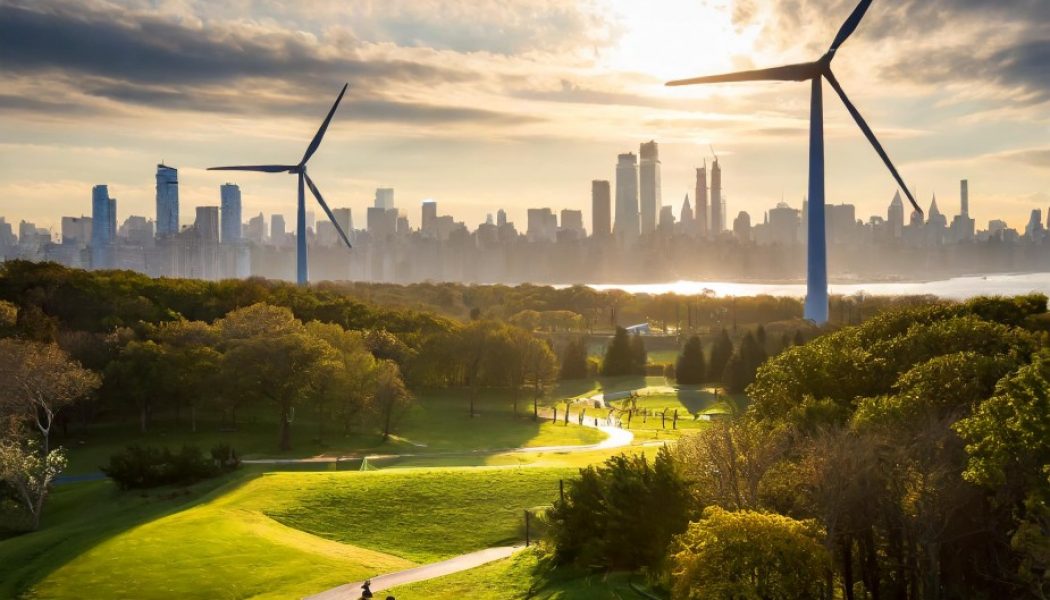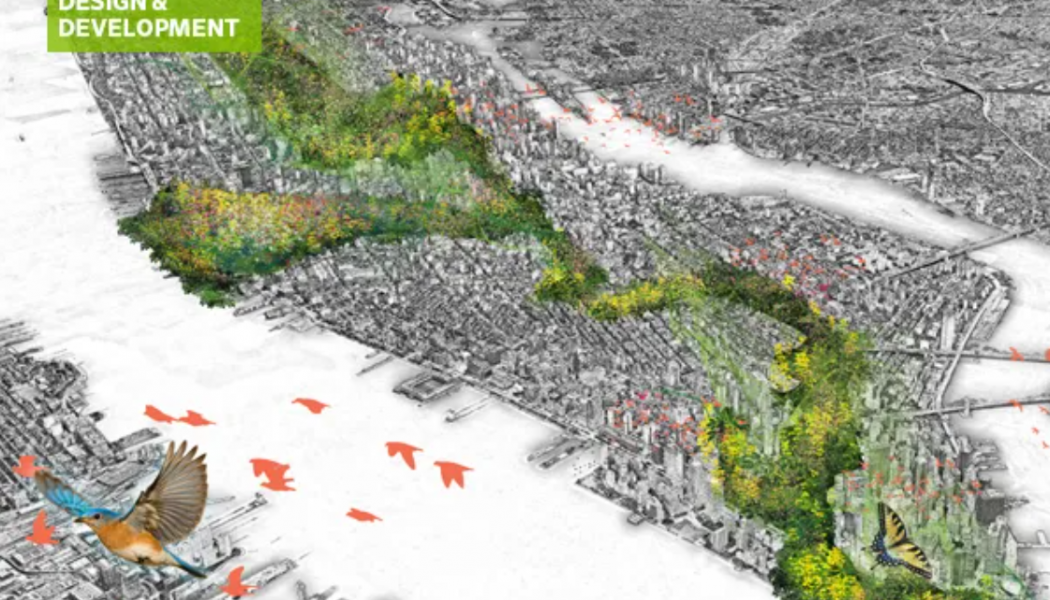Featured
Posts to be featured on the Main Page.
Beyond the Ramp: Designing for the Whole Play Space
By Jill Moore, inclusive play specialist, Landscape Structures Inc. When I roll into a new park, one of the first things I notice is whether inclusion ends at the ramp or if it extends to the entire space. Too often, I see beautiful playstructures that “meet the code,” but don’t truly invite everyone to participate. As a wheelchair user, going to the playground as a child frequently meant I was relegated to the sidelines. Now, as an inclusive play specialist and an advocate within the space, I get to see firsthand the impact of creating playgrounds that go beyond minimum requirements. The law sets the floor. As designers, planners, and advocates, we can reach for the ceiling. That perspective isn’t new at Landscape Structures. Back in 1993, our Cofounder Steve King, was appointed to the Fe...Read More
News You Can Mulch
Between tending to clients and designing site plans, to keeping up with professional development trends, it’s easy to lose track of the latest industry news. That’s why we rake the internet for the freshest information relating to landscape architecture, planning, gardening, and more–all for busy landscape architects and industry partners. Starting at Harvard and Falling for Your First Tree At Harvard, students are gathering wisdom from surprising mentors—trees. Why This Stairway That Would Connect SF Neighborhoods Has Been Unfinished for 10 Years Read why residents of Dogpatch and Potrero Hill say a completed outdoor stairway would be heaven. Here Are All 2026 Team USA Olympians With “Normal” Jobs While we feel accomplished when we reach our daily 10,000 steps, landscape archi...Read More
ASLA 2026 Professional and Student Awards Call for Entries
Showcase the best of landscape architecture—ASLA’s 2026 Professional and Student Awards calls for entries are open. Professional Awards The ASLA Professional Awards honor the best built and unbuilt work worldwide. Submit early to save with tiered pricing: Early Bird deadline: January 9, 2026 ALL materials due (all professional entrants): February 6, 2026, 11:59 p.m. PST Recognition: Winners are celebrated at the ASLA 2026 Conference on Landscape Architecture and featured in Landscape Architecture Magazine. Professional Categories: General Design Residential Design Urban Design Analysis & Planning Communications Research Landmark Award ASLA/IFLA Global Impact Award Community Service and other special recognitions. Professional Awards Jury Chairs: General Design, Residential Desig...Read More
Spark Talks: Beyond the Classroom – Bridging Studio to Reality
ASLA invites landscape architecture students to join Spark Talks: Beyond the Classroom – Bridging Studio to Reality, a dynamic five-part webinar series designed to help bridge the gap between academic learning and professional practice. Starting on October 23, these short, engaging conversations bring together emerging professionals—many of whom were students not long ago—to share their experiences, lessons, and insights about transitioning into the workforce. Each session explores a different facet of post-graduate life. The series begins with “Office Life 101,” a high-level overview of what to expect after graduation, featuring voices from large firms, small studios, and public practice. Next, “Marketing Skills/Business Development” offers a behind-the-scenes look at how professio...Read More
The Top Six Things We Saw (and Heard!) at ASLA 2025
The American Society of Landscape Architects recently wrapped up its annual conference. New Orleans, its lush parks, as well as its unique mix of French, Spanish, Creole, and American architecture, provided the backdrop to show off our profession, share wisdom from established landscape architects (or as we like to call them, our new mentors), showcase new ideas from up-and-coming professionals, and bop to some truly amazing live music. While we had a blast exploring the city’s iconic neighborhoods, there’s more to New Orleans than Bourbon Street and beignets. Our feet may ache from all the walking, but our heads and hearts are buzzing with inspiration. Here are a few highlights from ASLA 2025. Appreciation for cultural landscapes: Cities are more than collections of buildings, streets...Read More
Plant Hardiness: What Is It and What Does It Mean to the Landscape Architect?
Hardiness is a term that comes up frequently, often in discussions of climate. What horticulturists mean by hardiness may be different from what landscape architects intend when considering plants. To horticulturists, plant hardiness typically refers to a specimen’s cold hardiness. This is just one of the many characteristics of a plant that will affect its performance. If the designer is concerned about other qualities like drought or heat tolerance, that needs to be clarified. Plant hardiness is designated by a USDA Hardiness Zone rating. The map showing these zones can be found here. These zones indicate the average minimum winter temperature that can be expected in that area. There’s a lot of room in that definition: average is not the same as median, or what you may see in the first f...Read More
Social Media Awards in Landscape Architecture 2024 – Winners!
Here are the winners of the 7th Annual Social Media Awards in Landscape Architecture presented by Land8 and the American Society of Landscape Architects! Social media has the power to significantly increase the awareness and importance of the profession of landscape architecture, and Land8 and ASLA believe industry leaders in social media should be recognized and promoted. Be sure to follow the winners to help grow and promote the profession! Top 10 Social Media Accounts – LANDSCAPE ARCHITECTURE FIRMS 1. Design Workshop, Inc. – Instagram | LinkedIn We use social media to promote the value of landscape architecture and its role in creating resilient, connected, and beautiful spaces. Our posts highlight DW Legacy Design®—balancing environmental sensitivity, community connection, artistry, an...Read More
Top 10 Landscape Architecture Books for 2025
Thriving in the work of landscape architecture requires maintaining inspiration, often as much as growing your knowledge and experience. To stay fresh, the right book can be your greatest ally. In 2013, Land8 created a list of the “Top 10 Books for Landscape Architects”. We still value these texts (and may even have selected a few for re-inclusion on this list), but today our profession has grown increasingly dynamic, interdisciplinary, and deeply tied to the urgent needs of our planet. We need new guides to this expanded field. Everyone loves their favorite landscape architect’s latest studio monograph, but we’re not playing favorites. You know if your fav studio has a new book out. Instead, we’ve chosen a spread of works in different topics within the profession to feed your practice a...Read More
Resilient Landscapes: Native Plants and Local Solutions
Native plant grower, Southern California / image: image: Tree of Life Nursery, San Juan Capistrano, CA Today, landscape architects and designers have access to an unprecedented variety of plant species and hardscape materials. Thanks to modern advances in distribution, cutting-edge greenhouse technologies, streamlined inventory systems, and online resources our choices have expanded dramatically, no matter where we practice. However, this abundance can lead to decision fatigue, or conversely, complacency—repeatedly specifying a limited selection of exotic plants or standard materials simply out of habit and reconfiguring them for each site. Corporate or institutional clients and homeowners face similar challenges, turning to landscape architects for guidance not only for achieving aestheti...Read More
Emerging Professional View: ASLA Conference 2024
As the morning sun crested the Washington Monument on Saturday, October 5, 2025, a group of landscape architecture professionals, fanatics, visionaries, creatives, and diehards descended upon Washington, DC. Not only was this my first time in DC, it was my first time attending ASLA’s national conference, and I was especially excited to ride the Metro and visit the US Botanic Garden. Surrounded by iconic American landscapes, the 2024 ASLA Conference on Landscape Architecture kicked off with the theme of ‘Insight’. Weather permitted, lanyards jostled, and networking commenced for an unforgettable week. Paying homage to famous landscapes and paying attention to the leaders at the cutting edge of this profession left feet sore and sleep sparse. In the shadow of the nation’s capital, insi...Read More
“Putting” Green: A Radical Vision to Transform NYC’s Golf Courses
In the bustling urban jungle of New York City, a proposal is brewing – a vision that transcends the concrete and steel we adore and is known for, ushering in a new era of green innovation. In a city renowned for this architectonic skyline, our focus now shifts to the sprawling green carpets and the public golf courses that dot the landscape. This isn’t just about redesigning the city; it’s about redefining its soul. A Concrete Jungle with Hidden Green Treasures New York City, often celebrated for the gritty urban landscape where dreams are made, finds itself at a crossroads. A city known for its towering skyscrapers and iconic landmarks is now presented with an audacious idea – a paradigm shift in how it views and utilizes its 13 publicly owned golf courses. This provocative tr...Read More
Lost in Translation: Society’s Mix-Up of ‘Environment’ in Landscape Design
Green fissure / image: LAUD – Lucila Silva-Santisteban In the fabric of our language, words have different shades of meaning. Each word carries a special sense, reflecting its depth and complexity. However, one word, ‘environment,’ has kind of lost its original meaning, especially when we talk about landscape architecture. People often use it carelessly, and this has watered down its real significance, overshadowing the nuanced understanding that landscape architects want to convey. At its core, ‘environment’ is not just the background or a general term for our surroundings. It’s a concept that includes the complex relationship between living things and the world around them, stressing how nature and human intervention work together. However, in today’s talk, ‘environment’ has become a cat...Read More



